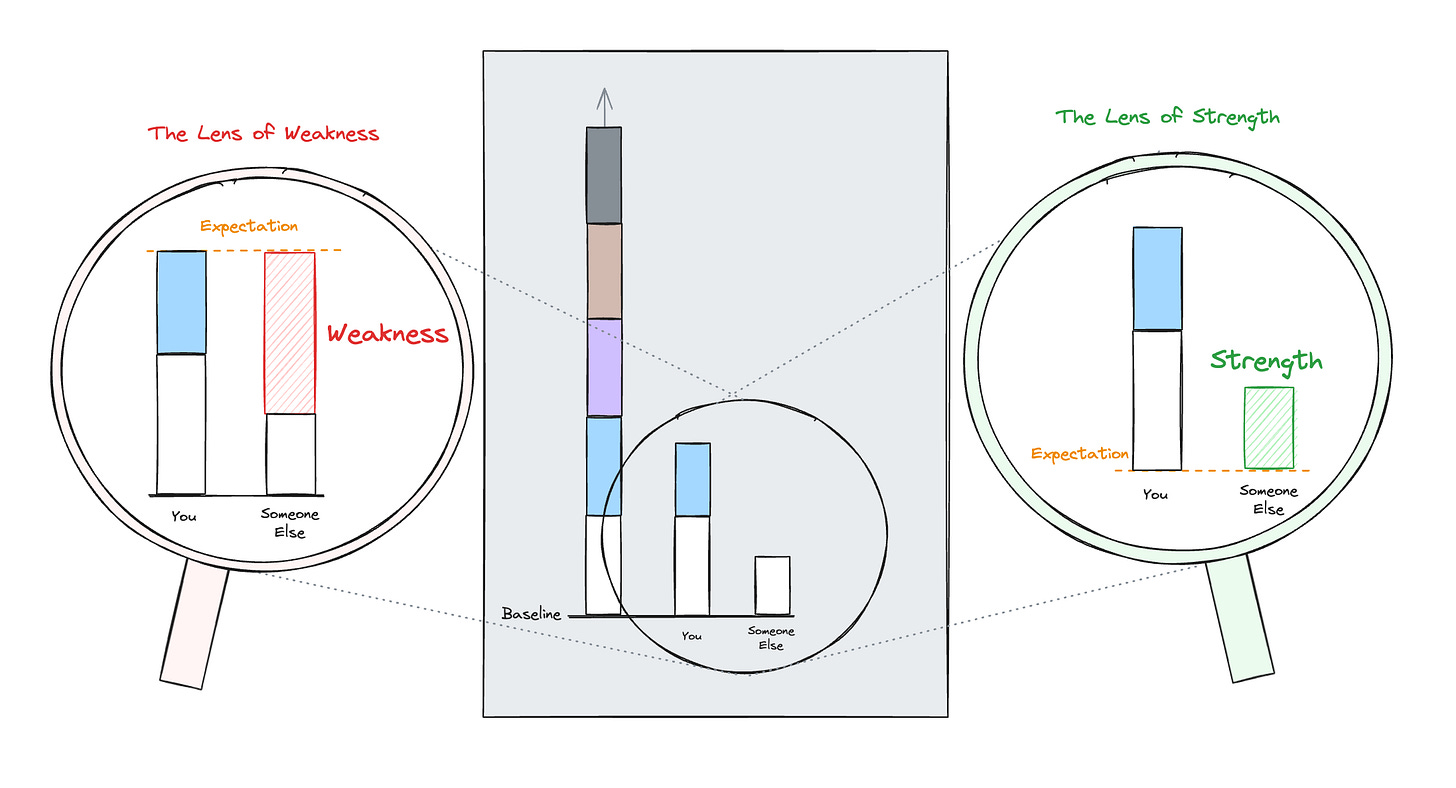#7: The Lens of Strength
Thoughts on finding and maximizing other's strengths
Last week, I was listening to the one of the original Jocko Podcasts, Jocko Podcast 3. In the Q&A portion at the end Jocko addresses a question asking how he deals with people who are not like him, and in particular people who are close to him.
Jocko answers the question in an interesting way. He starts by stating that he keeps a low expectation of people. He acknowledges that at first, this sounds like a bad thing. But as he articulates his answer, what he ends up explaining is that he's essentially shooting to minimize the downside and maximize the upside of his relationships. By setting the bar low, it opens your mind to learning from people. It opens your mind to seeing their skills as strengths and finding a way to utilize those strengths.
Metaphor in Sports
I think a metaphor for this can be found in jiu jitsu, or really any area of skill in life. In jiu jitsu, there's 5 levels of belts to move up through that reflect how skilled you are in the sport.
Let's say you're a blue belt in jiu jitsu and you're working with someone who's recently started the sport. If you're expectation is that everyone is as competent as you in this particular skill, then you're going to by default focus on their weaknesses. You'll close your mind to learning from them. You'll focus on all the things they can't do.
On the flip side, if your expectation is set at the baseline being that most people have never practiced jiu jitsu before, now you're going to view what skill they do have as a strength. You'll respect what they know. You'll even see that maybe, just maybe there's something they know that you don't. Maybe they've focused on a move for a month that you have yet to dive in to. You could learn from that. If nothing else, they are currently a white belt, and that means they are intimately familiar with what it's like to be a white belt. If you're a blue belt, maybe it's been years since you've been in their shoes. And that means you've got some lessons and perspective to learn or relearn from them.
Link to The Effective Executive
I love how this ties in to an important concept that Peter Drucker dedicates an entire chapter to in The Effective Executive. To open the chapter, titled "Making Strength Productive", Peter writes:
The effective executive makes strength productive. He knows that one cannot build on weakness. To achieve results, one has to use all the available strengths the strengths of associates, the strengths of the superior, and one's own strengths. These strengths are the true opportunities. To make strength productive is the unique purpose of organization. It cannot, of course, overcome the weaknesses with which each of us is abundantly endowed. But it can make them irrelevant. Its task is to use the strength of each man as a building block for joint performance.
Jocko's frame is a great way to allow ourselves to find those strengths in others.
Conclusion
I've seen myself slip into the tendency of focusing on the weaknesses of others, and that's dangerous. As a leader, it's critical for me to look at the world and in particular my teams through the lens of finding strengths and making those strength productive. This is one of those lessons I'm sure I'll have to relearn many times before it becomes second nature. That means I've got room to improve. Let's get after it.




